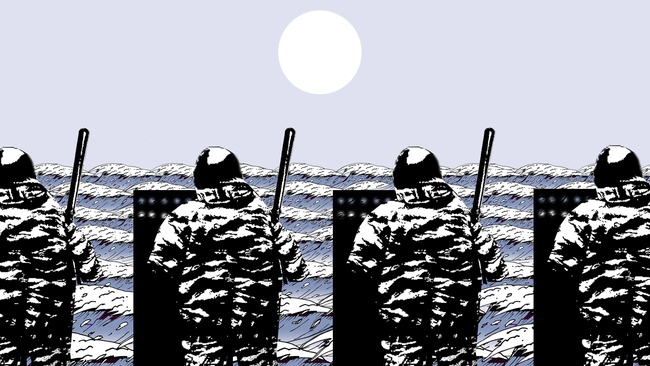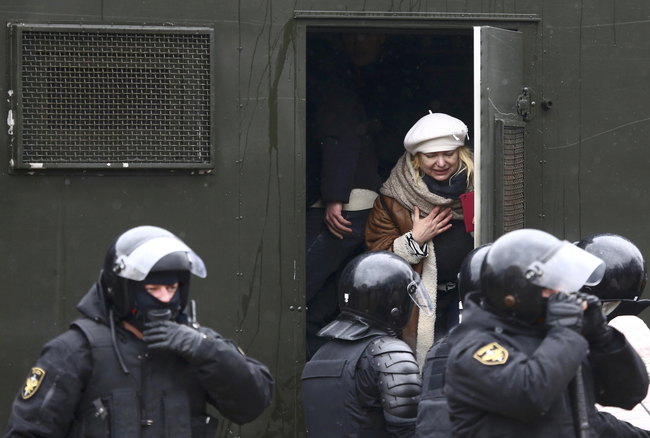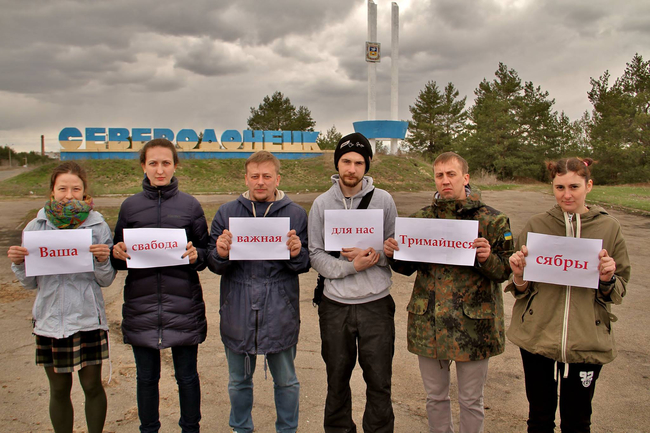Protests on Freedom Day
The West has condemned the Belarusian authorities over the security forces’ brutal actions against peaceful protesters
Valery KARBALEVICH, political analyst, Minsk:
“These protests reflect the popular and public discontent with the social and economic situation that has developed in Belarus after the protests began which were caused by the government passing a decree on so-called parasites, which made unemployed liable to pay a tax amounting to 200 dollars. All this caused outrage and, moreover, the poor social and economic situation in the country became the protest catalyst. For the third consecutive year, all indicators have been falling, and all this shows that the Belarusian socio-economic model has entered a crisis.
“The population feels that the social project which Lukashenko tried to implement in Belarus and which was based on the state-dominated economy leads to a dead end. For a long time, the Belarusian leader managed to keep it going thanks to Russian subsidies, which have now declined, and the country is experiencing a socioeconomic and even psychological crisis. In fact, the society is back to the situation of the 1990s, when the Belarusians experienced a similar psychological crisis in connection with the collapse of the Soviet Union.
“The protests were absolutely peaceful, their participants did not take any violent actions, but the authorities still resorted to excessively brutal crackdown, which involved demonstrative brutality obviously going beyond the necessary measures, since they did not represent any threat to the regime. Overthrowing the government was not on the agenda. People who took part in the protests did not constitute a threat to the regime.
“Concerning the assumptions that these protests can play into Russia’s hands, I can say the following: Russia did not react to these rallies at the official level in any way.

REUTERS photo
“You can reason about it to no end, but such reasoning is not based on any facts. All that talk that they are weakening the position of Belarus (or not) means nothing because the protests in Moscow have been suppressed with similar brutality. Here, the factor of solidarity between dictators could have played a part. The Russian factor here does not really exist, except in the form of some theoretical reasoning.
“Here it can be noted that police states operate according to the same pattern and by the same rules: strict control over the society, far in excess of anything necessitated by the threat.
“As for the EU’s response to the events in Belarus, it is much weaker compared to what it was after December 19, 2010, when the opposition activities were suppressed just as brutally. This comparative softness is due to several reasons. Just this weekend, there were protests in other cities: Rome, London, Moscow, and Bishkek. There were clashes with the police there as well, and therefore the Belarusian situation was a little lost against this background. Also, the EU is in a difficult situation, and they simply have no time to spare for Belarus.
“Belarus took a neutral position following the annexation of Crimea by Russia and the start of the conflict between Russia and Ukraine, Russia and the West. The West appreciated this. However, geopolitics has now supplanted the issues of values, human rights, democracy, and recently the West’s conceptual approach itself to such events, I mean the protests in Belarus, has changed. It used to be that people in the square were always right. But this principle has been slightly corrected lately, since after the Arab Spring Western politicians began to treat it more cautiously when it became clear that authoritarian regimes had stabilized the situation there, and their overthrow has led to the destabilization of the entire Middle East and the growth of Islamic extremism.
“Let us address the likely development of the situation in Belarus now. It can be said that such a brutal suppression of the protests did have an impact, especially in the provinces where people are not accustomed to such actions. It is quite possible that the protests will now decline in intensity. Another thing is that relying on repression is a very dangerous thing, and especially so in a crisis, when repression only strengthens the public’s discontent with the regime. One could previously consider the repressions against the opposition as a conflict between the regime and the opposition, but these rallies have become expressions of the social protest, and it can turn into a conflict between the regime and the people. This latter is always much more dangerous for the regime, therefore, in addition to the repressions, the government needs to take other steps to mitigate the situation.”
Interviewed by Mykola SIRUK, The Day

Photo from Evgenii VASYLIEV’s Facebook page
A VOICE FROM FACEBOOK
Elena GALKINA:
“It is hard to come up with a better gift for Putin’s electorate in 2018 than a new constituent entity of the Russian Federation and an expansion of its territory to the west.
“Therefore, either Belarus will democratize, or it will be absorbed by Russia in the very near future. The probability of other scenarios is within the statistical error.
“Yesterday’s dispersal of the peaceful protest has shown that Lukashenko is not aware of this.
“Instead of cracking down on the pro-European protest, he should open for dialog and lead.
“Only this way can become a salvation for the country.
“Alas.
“So far, Lukashenko is doing everything the other way round.”
(https://www.facebook.com/elena.galkina.1690/posts/1502021866497956)
Newspaper output №:
№21, (2017)Section
Day After Day





